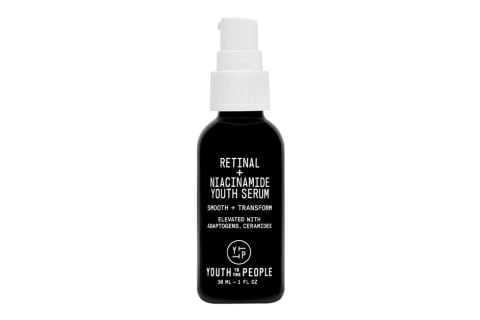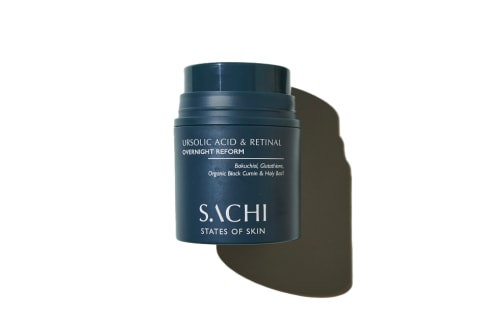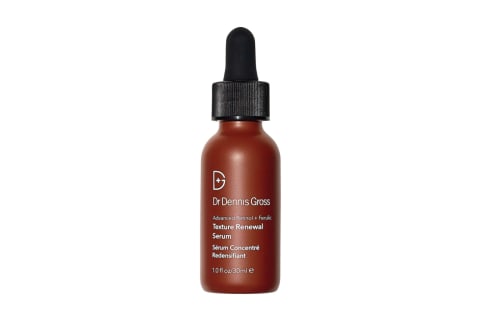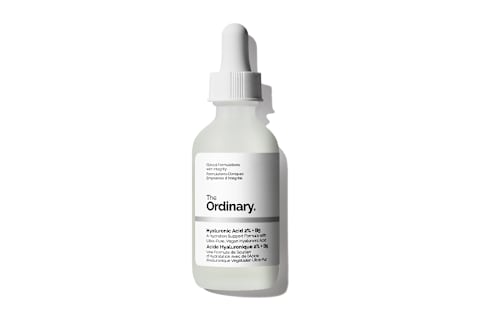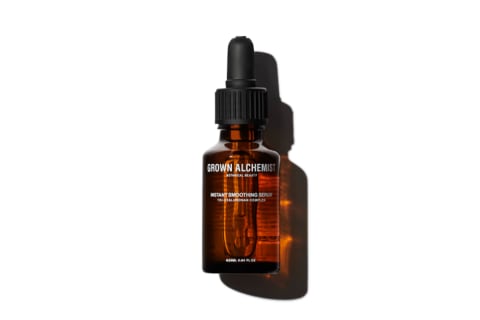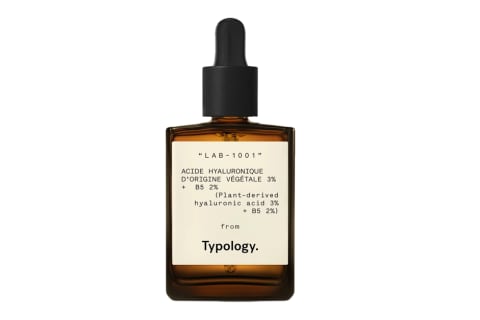Advertisement
Can You Mix Retinol & Hyaluronic Acid? What The Pros Suggest


Of all the skin care ingredients out there, retinol is one of the most complex. Not only are the side effects more intense than most, but there's also a long list of do's and don'ts to follow.
One of those nuances has to do with mixing retinol with other ingredients. We've covered how retinol and chemical exfoliants don't mesh well with retinol, but is hyaluronic acid on the same list? Below, experts answer this common inquiry.
Can you mix retinol & hyaluronic acid?
Yes, you can mix retinol and hyaluronic acid together without risking a negative chemical reaction. "The two work as completely different mechanisms and don't interfere with each other," explains cosmetic chemists Gloria Lu of Chemist Confessions.
"In fact, since one of the side effects of retinol is dryness, it does help to have hydrators like HA in your routine," Lu adds.
How to use them together
There are plenty of different ways to use hyaluronic acid and retinol together. Below, a few A+ options:
- HA serum before retinol: "We recommend HA serum first, then retinol serum," says cosmetic chemist Victoria Fu of Chemist Confessions. Most HA serums are water-based, whereas retinol serums are emulsion-based (having both water and oil)," Fu adds. If you apply HA first, your skin will have a better chance of absorbing it fully.
- Retinol + HA products: You may also find retinol and hyaluronic acid mixed into the same product. Anyone who's prone to dry skin or tends to react poorly to retinol may benefit from this hydrating boost.
- HA morning, retinol at night: If you want to skip the layering, then apply hyaluronic acid in the morning and retinol at night. See retinol isn't stable enough to be worn in the sunlight, so it should be applied right before bed. HA, on the other hand, may just help your skin get through the day without looking ashy, so it's great to apply when you wake up.
What is retinol?
Now for a quick refresher on these two skin superstars, starting with retinol. The term "retinol" refers to a compound derived from vitamin A. Technically, retinol falls under the umbrella category of "retinoids," which include all vitamin A derivatives.
Some retinoids, like tretinoin and Tazorac, are stronger and thus require a prescription. However, you can also find gentler over-the-counter retinols that have similar skin care benefits (those are the ones we are talking about today). In addition to these, there are retinaldehyde (a more potent derivative than retinol) as well as weaker types such as retinyl palmitate and retinyl esters.
Benefits of retinol
Retinoids, retinol included, work by increasing cell turnover in the skin and promoting collagen production. Here, some notable benefits of retinol:
- Eases fine lines and wrinkles: Retinol has been scientifically shown to increase collagen production in the skin1, thereby reducing the appearance of fine lines and wrinkles.
- Increases cell turnover: "Besides stimulating production of new collagen, retinol enhances cell turnover," board-certified dermatologist Joshua Zeichner, M.D., says regarding the ingredient. "This means it sheds dead and damaged cells that make the skin look dull."
- Helps with acne: Retinol also helps keeps pores clear as they decrease the tendency of dead skin cells to clump together, "where slowed dead cell shedding leads to enlarged pore appearance and breakouts," board-certified dermatologist Loretta Ciraldo, M.D., FAAD, once shared with mbg.
Best retinol products
What is hyaluronic acid?
Now on to the crowd-favorite hydrator hyaluronic acid. As noted earlier, HA is what we call a humectant, meaning it pulls water into the skin, resulting in a plumper, more dewy complexion. You actually already have HA in your body within your joints, eyes, and so on, but most of it is found in the skin.
HA has been incorporated into serums of all kinds for many years, but its recent popularity is due to the ingredient being isolated as its very own serum, to be used before other creams and oils.
Not everyone needs an extra hyaluronic acid step, but it can be helpful for anyone with dry skin, those prone to irritation, or anyone who just wants a bit more hydration. Luckily, it plays nice with most ingredients, so it's a fairly user-friendly ingredient, too.
Benefits of hyaluronic acid
- Super hydrating: Hyaluronic acid can hold an impressive 1,000 times its own weight in water2, which is why it's one of the best defenses against dry skin.
- Aids in healing: In addition to being present in just about every imaginable part of the body and responsible for keeping skin looking healthy and hydrated, HA is integral to our body's healing process2.
- Preps skin for makeup: If you want your complexion to look radiant pre-makeup, add a hyaluronic acid serum or primer to your routine. The more hydrated your skin is, the less foundation you'll reach for.
Best hyaluronic acid serums
What not to mix with retinol
While retinol does play nice with HA, that can't be said about many ingredients. Below, a few ingredients that should never be on your skin at the same time as retinol:
- Exfoliants: Both AHAs and BHAs can react poorly when mixed with retinol. Not only do you run the risk of irritation, but you may also create a negative environment for both ingredients, preventing them from working properly on your skin.
- Other retinol products: You should only use one retinol product on your skin at a time. Even if one serum has a small concentration of retinol, it's likely not formulated to work in conjunction with another retinol serum.
- Some prescription-grade topicals: If your dermatologist gave you a topical cream for any such reason, make sure you ask them before mixing that product with retinol to avoid possible irritation.
FAQ
Can retinol and hyaluronic acid be used together?
Yes, you can mix retinol and hyaluronic acid together without risking a negative chemical reaction. "The two work as completely different mechanisms and don't interfere with each other," explains cosmetic chemists Gloria Lu of Chemist Confessions.
"In fact, since one of the side effects of retinol is dryness, it does help to have hydrators like HA in your routine," Lu adds.
Do I use retinol before or after hyaluronic acid?
"We recommend HA serum first then retinol," says cosmetic chemist Victoria Fu of Chemist Confessions. "Most HA serums are water-based whereas retinol serums are emulsion-based (having both water and oil)," Fu adds. If you apply HA first, your skin will have a better chance of absorbing it fully.
Should I use retinol and hyaluronic acid at night?
Retinol should only be used in the evening, as it tends to be sensitive to sun exposure. As for hyaluronic acid, feel free to use it in the morning or evening, or both! When layering with retinol, use HA before retinol to increase absorption of the hyaluronic acid and ease the drying effect of retinol.
The takeaway
Retinol and hyaluronic acid can be mixed together, and the combination is even beneficial. HA helps prevent dryness that may come with retinol use, so go ahead and mix the two should you feel inspired. To learn more about the highly complex ingredient, check out our retinol 101 story here.
